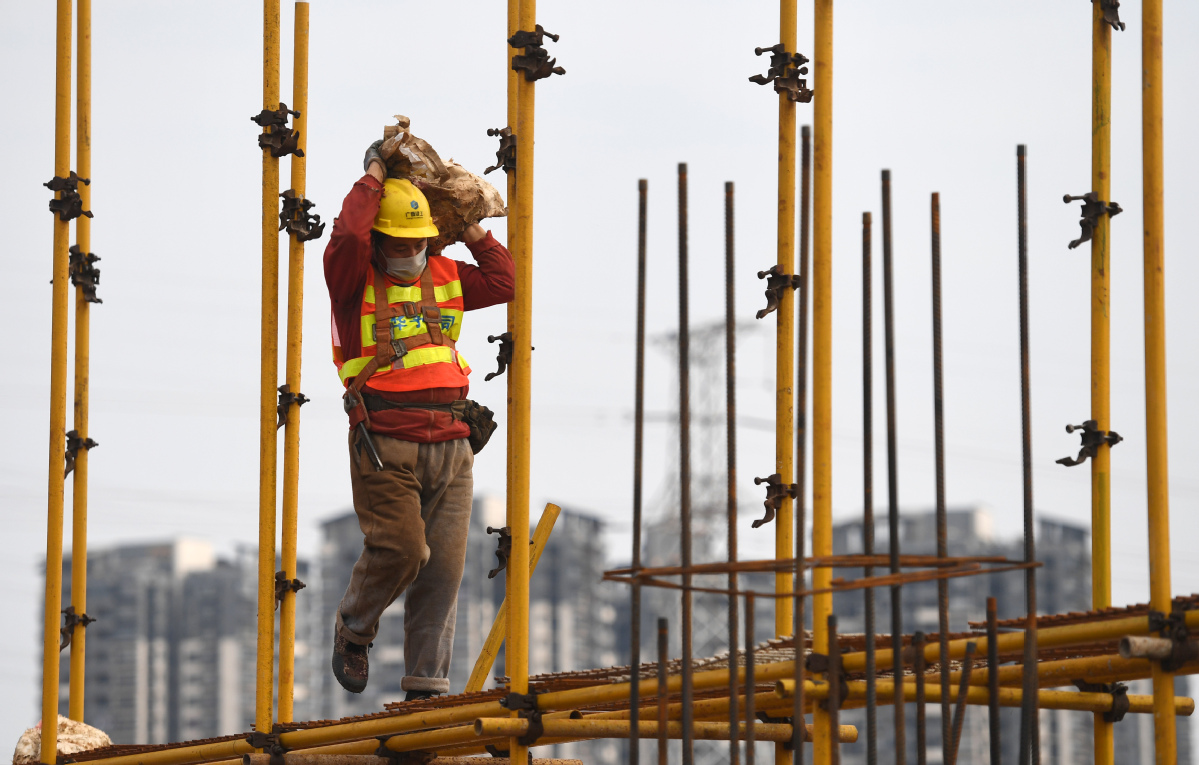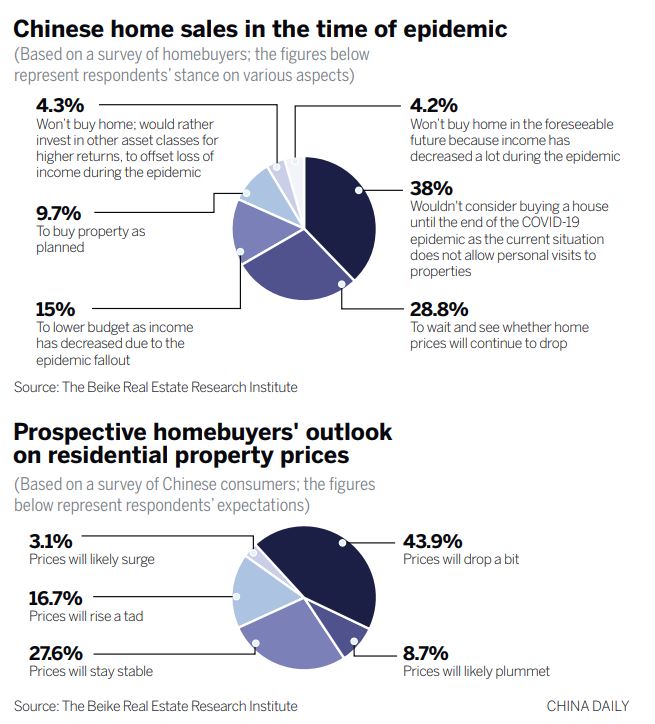A new era of living


Price is still the decisive determinant in choosing a property. Nearly 44 percent of respondents believe that home prices will edge down within a small range after the epidemic ends. And nearly 28 percent think home prices will be stable.
Homebuyers may find prices a tad lower as falling interest rates will reduce the monthly instalment payments of property mortgages, according to Xie of CBRE.
At the same time, property developers facing high pressure on capital flows are expected to offer more promotional offers and discounts, said Yang with Knight Frank.
There is market-wide consensus that real estate is clearly one of the major industries hit hard by COVID-19.
In the first quarter, transactions for new homes tumbled almost 26 percent from a year ago, data from the National Bureau of Statistics showed. And the combined transaction volume in the first three months in 66 cities monitored by Beike shrank nearly 26 percent year-on-year to 42.47 million square meters.
The situation in the secondary market is more critical. Trade volume of pre-owned residential properties slumped nearly 45 percent in the first quarter from a year ago, which is the lowest in the past five years, according to the Beike Real Estate Research Institute.
There were 14 out of the 17 major cities that Chinese residential property agency Lianjia monitors reported price falls in the home market throughout March compared to the levels of January and February.
Without doubt, the impact of the contagion is strong, but that's going to be only temporary, analysts said. The pent-up demand will spur a wave of sales in the post-COVID period, analysts said.
Industry observers said there is no sign the central government will alter its macro-controls on the real estate industry, which could ensure orderly conduct in the marketplace. The annual Central Economic Work Conference last December set the tone by noting that "to make sure the property market is developed steadily and healthily, we must uphold the principle that 'housing is for living in, not for speculation', and to implement policies in accordance with each city's condition while the long-term mechanism for stable land prices, home prices and market expectation is being created."
Third-and fourth-tier cities are more vulnerable in confronting the impact of COVID-19, as the property sector there is not backed by strong industries and steady demand seen in first-and second-tier cities, said Zhang of Cushman& Wakefield.
"This underscores the importance of effective local measures in accordance with a city's specific circumstances."
Xu Xiaole, chief market analyst with the Beike Real Estate Research Institute, said the bottom line is that the epidemic has not changed the fundamentals of the property market. "Instead, COVID-19 provides an opportunity for everybody to re-examine the value of their property, push for the improvement of property services, and drive the whole industry into a new era of living," said Xu.




































